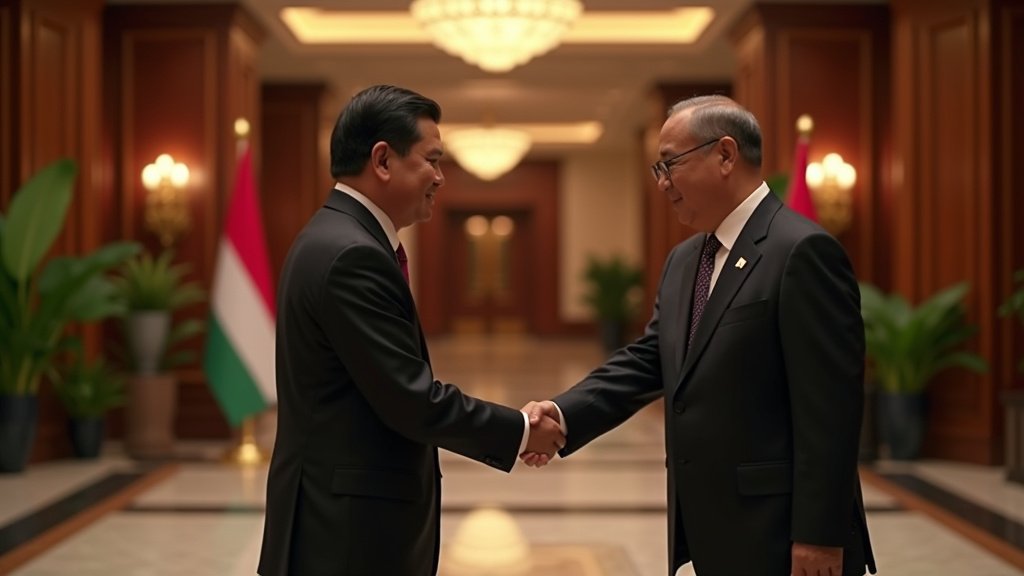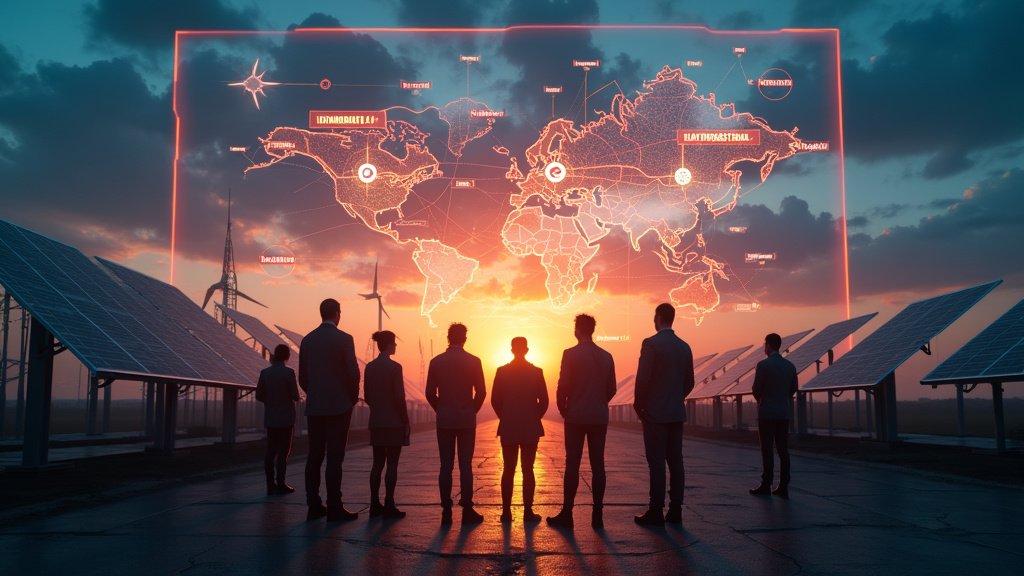The 15th of November, 2025, proved to be a dynamic day across Southeast Asia, with significant **Southeast Asia developments** spanning high-level diplomacy, ambitious infrastructure projects, crucial cybersecurity investments, and responses to challenging weather events. From presidential meetings in Jakarta to critical infrastructure advancements in Ho Chi Minh City and a wave of cybersecurity funding in Singapore, the region showcased a diverse array of significant happenings, reflecting key **Southeast Asia developments**.
Indonesia and Jordan: Deepening Southeast Asia Diplomacy and Infrastructure Ties
In Jakarta, Indonesian President Prabowo Subianto hosted King Abdullah II of Jordan for crucial bilateral discussions that underscored deep diplomatic and personal ties. The meeting focused on expanding strategic cooperation, particularly in phosphate commodities essential for fertilizer production. Investment Minister Rosan Roeslani announced that Jordan offered a substantial $1.3 billion investment package for Indonesia’s energy and infrastructure sectors, including gas pipelines, toll roads, and logistics facilities. This expanded partnership aims to bolster Indonesia’s chemical industry capacity and ensure a stable domestic fertilizer supply. This is a prime example of positive **Southeast Asia developments** in bilateral relations. King Abdullah II also bestowed one of Jordan’s highest honors upon President Subianto, highlighting the robust relationship between the two nations. The **Indonesia Jordan relations** are a key focus in these **Southeast Asia developments**.
Myanmar’s Election Readiness and Cultural Preservation Efforts
In Myanmar, the government is actively pursuing initiatives to preserve its rich cultural tapestry and ensure a transparent electoral process. Efforts are underway to enhance Myanmar’s literature and indigenous languages, with a call for ethnic groups to contribute to nation-building. Simultaneously, a significant development was the launch of a guidebook specifically tailored for journalists covering the upcoming 2025 General Election, scheduled for December 28. This initiative aims to promote ethical reporting, accurate fact-checking, and neutrality, marking a trending step towards greater electoral transparency. The focus on **Myanmar election readiness** is a notable among recent **Southeast Asia developments**.
Philippines Weather and the Intertropical Convergence Zone
The Philippine Atmospheric, Geophysical and Astronomical Services Administration (PAGASA) reported that the Intertropical Convergence Zone (ITCZ) continued to influence the weather across the archipelago on November 15. Scattered rain showers and thunderstorms were forecast for the Visayas, Mindanao, MIMAROPA, Bicol Region, and Quezon Province. PAGASA issued advisories for potential flash floods and landslides in vulnerable areas, urging residents to remain vigilant. Meanwhile, Metro Manila and other parts of Luzon experienced localized thunderstorms due to diurnal weather patterns. The weather bureau confirmed no significant tropical cyclones or low-pressure areas were being monitored within the Philippine Area of Responsibility. These **Philippines weather** patterns are part of ongoing **Southeast Asia developments**.
Singapore’s Cybersecurity Funding Boost
Singapore continued its commitment to bolstering its cybersecurity resilience with a significant funding announcement. The Cyber Security Agency of Singapore (CSA) awarded over $16 million to 18 diverse research and innovation projects aimed at strengthening the nation’s cybersecurity ecosystem. These grants, distributed through the Translation and Innovation Grant 2025 and the CyberCall 2025 initiative, will support projects focusing on areas such as AI-driven security operations, privacy-enhancing technologies, and critical information infrastructure protection. This strategic investment signals Singapore’s ambition to lead in developing practical, deployable cybersecurity solutions. The **Singapore cybersecurity** advancements are crucial **Southeast Asia developments**.
Thailand’s Dual Challenges: Flooding and Legal Proceedings
Central Thailand experienced severe flooding as a temporary embankment along the Chao Phraya River in Chai Nat’s Sapphaya District collapsed. The breach, attributed to high discharge rates from the Chao Phraya Dam, led to inundation of over 400 households, with water levels reaching up to two meters in some areas. This critical situation highlights the ongoing challenges posed by the monsoon season. In a separate development, a high-profile former police officer, Santhana Prayoonrat, and five associates were granted bail by the Bangkok South Criminal Court. They face multiple charges, including kidnapping and extortion, in connection with a 2021 case involving a Taiwanese businessman. Prayoonrat has alleged the case is politically motivated, claiming it was revived to damage his reputation. The group is subject to electronic monitoring bracelets and reporting restrictions. These **regional weather events** are significant **Southeast Asia developments**.
Vietnam Accelerates Metro Development and Aids Storm-Hit Regions
Vietnam is moving forward with major urban development projects, with Ho Chi Minh City confirming the January 15, 2026, groundbreaking for its Metro Line 2. This $1.8 billion, 11-kilometer urban rail project, which includes extensive underground sections, is crucial for easing the city’s notorious congestion. Preparatory work, including feasibility studies and environmental assessments, is scheduled for completion by December 2025, with full construction commencing shortly thereafter. In parallel, the Vietnamese government announced the allocation of VND700 billion (approximately $25.5 million) to four central localities—Hue City, Quang Ngai, Gia Lai, and Dak Lak provinces—to support post-disaster recovery efforts following recent storms. This funding will aid in housing reconstruction, resettlement, and the restoration of essential infrastructure, showcasing the government’s commitment to stabilizing affected communities. The **Asia infrastructure** focus in Vietnam is a key part of ongoing **Southeast Asia developments**.
Regional Economic Landscape and Climate Concerns Trend in Southeast Asia Developments
Beyond these specific country headlines, broader regional trends are also emerging. The latest e-Conomy SEA report indicates that Southeast Asia’s digital economy is projected to surpass $300 billion in Gross Merchandise Value (GMV) and $135 billion in revenue by the close of 2025, demonstrating robust growth and resilience. Discussions around climate action also remain a trending topic, with ASEAN nations exploring carbon taxes and market frameworks to drive low-carbon growth, though challenges persist in ensuring equitable implementation. These diverse happenings underscore the dynamic and interconnected nature of Southeast Asia as the region continues to navigate economic growth, infrastructure development, and environmental challenges. The **cybersecurity funding** in Singapore and the **Asia infrastructure** projects highlight the multifaceted nature of **Southeast Asia developments**.





